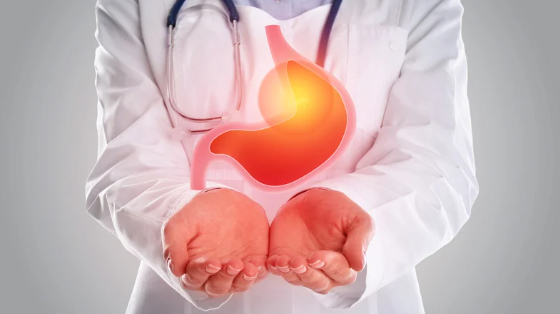The Impact of Untreated GERD on Dental Health and Vocal Cords
Gastroesophageal reflux disease affects more than just the stomach and esophagus, creating far-reaching health consequences that many patients never associate with their digestive condition. When stomach acid repeatedly travels upward into the throat and mouth, it causes significant damage to dental enamel and vocal cord tissues that can become permanent if left untreated. Many people experience persistent hoarseness, chronic cough, or unexplained tooth decay without realizing these symptoms stem from uncontrolled acid reflux episodes. Professional GERD treatment in Cobb County provides comprehensive care that addresses not only digestive symptoms but also protects against the serious oral and vocal complications associated with chronic acid exposure. Understanding these hidden consequences of untreated GERD motivates patients to seek appropriate medical intervention before irreversible damage occurs. Early recognition and treatment of GERD prevents costly dental procedures and vocal therapy while preserving overall health and quality of life.
How Stomach Acid Damages Dental Enamel
Stomach acid contains hydrochloric acid with a pH between 1.5 and 2.0, making it extremely corrosive to tooth enamel when it reaches the oral cavity through reflux episodes. This powerful acid gradually dissolves the protective enamel coating on teeth, creating microscopic pits and erosions that weaken tooth structure significantly.
Dental erosion from GERD typically affects the back teeth and inner surfaces most severely, as these areas receive the highest acid exposure during reflux episodes. Patients often notice increased tooth sensitivity, particularly to temperature changes and sweet foods, as the protective enamel layer becomes compromised.
Over time, acid erosion progresses beyond surface enamel into deeper tooth layers, potentially requiring extensive dental restorations, including crowns, veneers, or even tooth extraction and replacement when damage becomes severe.
See also: How Emerging Tech Will Reshape Education by 2030
Progressive Dental Complications from Acid Exposure
Untreated GERD creates an ongoing cycle of acid exposure that leads to increasingly severe dental problems requiring complex and expensive treatments to restore function and appearance. Initial enamel loss progresses to cavity formation in areas where acid has weakened tooth structure substantially.
The acidic environment in the mouth also promotes harmful bacterial growth that contributes to gum disease and additional tooth decay beyond the direct effects of stomach acid exposure on dental tissues.
Patients with chronic GERD often develop distinctive wear patterns on their teeth that experienced dentists can recognize as acid erosion, leading to referrals for appropriate digestive health evaluation and treatment.
Vocal Cord Damage and Laryngeal Complications
Stomach acid that reaches the larynx causes inflammation and swelling of vocal cord tissues, leading to chronic hoarseness that many patients attribute to allergies or excessive voice use rather than digestive problems.
The delicate tissues of the vocal cords are particularly susceptible to acid damage, developing areas of thickening, scarring, and inflammation that alter voice quality and vocal range permanently if acid exposure continues unchecked.
Lifestyle factors can worsen vocal complications, as the effect of smoking on GERD and acid reflux demonstrates how tobacco use compounds acid reflux while further irritating already damaged vocal cord tissues.
Respiratory and Throat Symptoms from Acid Reflux
Chronic acid exposure in the throat and upper airway creates persistent symptoms, including chronic cough, throat clearing, and sensation of a lump in the throat, that significantly impact daily comfort and social interactions.
These respiratory symptoms often worsen at night when lying down, which promotes acid reflux into the upper digestive tract and respiratory system, creating sleep disruption and daytime fatigue that affects overall quality of life.
The inflammatory response to repeated acid exposure can also contribute to asthma symptoms and chronic sinusitis in susceptible individuals, creating complex symptom patterns that require comprehensive medical evaluation.
Professional Diagnosis and Treatment Approaches
Experienced healthcare providers recognize the connection between unexplained dental problems, voice changes, and digestive symptoms, conducting comprehensive evaluations that identify GERD as the underlying cause of seemingly unrelated health issues.
Advanced diagnostic testing, including pH monitoring and laryngoscopy, provides detailed information about acid exposure patterns and tissue damage that guides targeted treatment approaches for optimal symptom control.
For patients seeking comprehensive information, learning everything you need to know about acid reflux and GERD helps recognize symptoms and understand treatment options that prevent progression of dental and vocal complications.
Conclusion
The serious dental and vocal consequences of untreated GERD extend far beyond simple heartburn, creating lasting damage that affects both health and quality of life. Professional medical intervention provides effective treatment that stops acid reflux while protecting teeth and vocal cords from further harm. Early recognition and treatment prevent irreversible complications while preserving oral health and voice function for years to come. Patients experiencing unexplained dental problems or voice changes should seek a comprehensive evaluation to identify and treat underlying GERD before permanent damage occurs.






